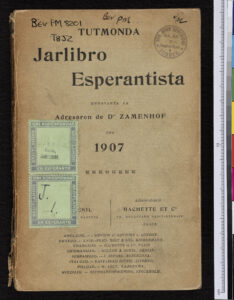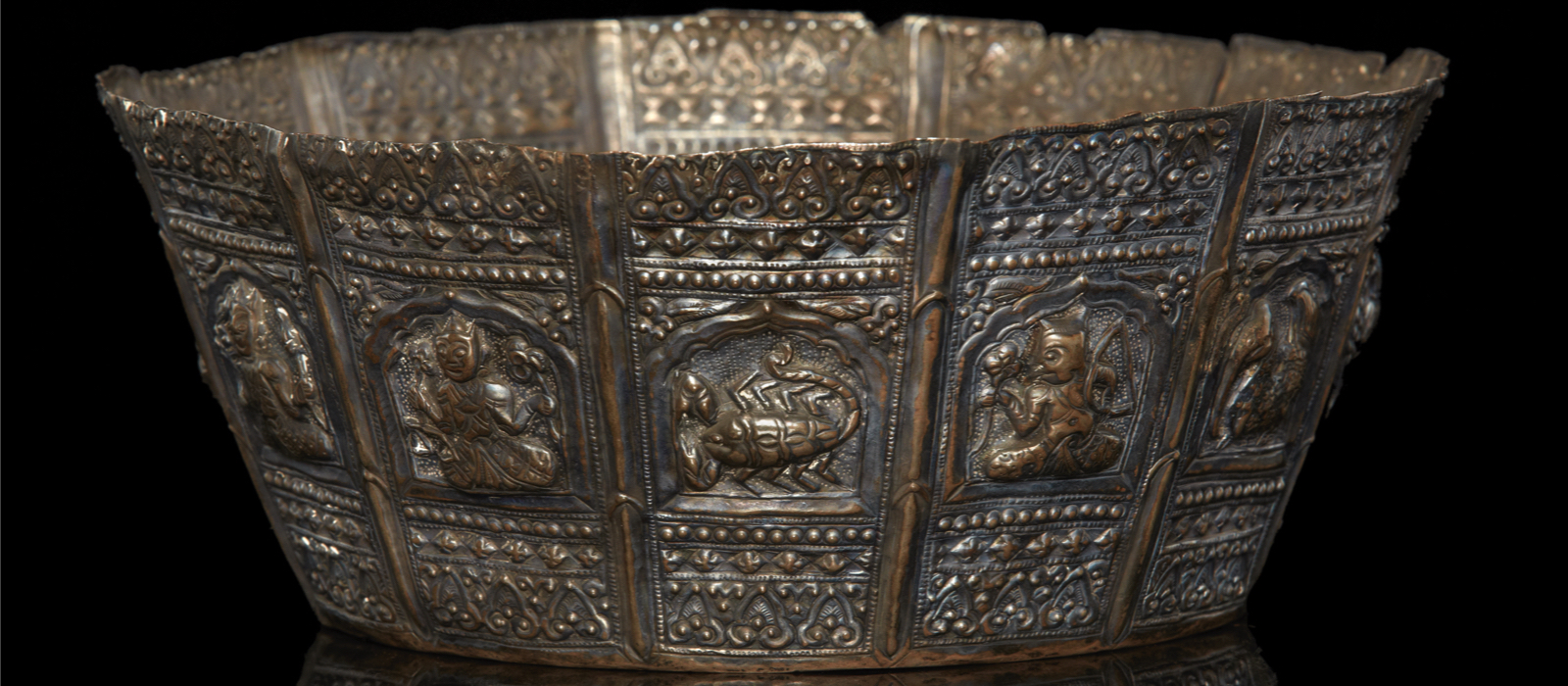Esperanto Wor(l)ds: Scotland, Postcards and the Creation of an International Language
13 April – 28 May 2023
Espernato Wor(l)ds: Scotland, Postcards and the Creation of an International Language is a research residency by Dr Bernhard Struck and Dr Guilerme Moreira Fians, historians at the University of St Andrews.
In 2023, English seems to have ensured its place as a global language. However, 100 years earlier, this was far from being the case. French and German played key roles in diplomacy, business, and the sciences. Faced with this, which language would British people speak beyond the English Channel?

In 1887, the Warsaw-based physician Ludwik Lejzer Zamenhof created Esperanto, a non-national language. It was aimed to bypass nationalist rivalries and enable more egalitarian communication for people from different national and linguistic backgrounds. Yet Zamenhof was then its only speaker.
This exhibition narrates the early development of the international Esperanto-speaking community through the perspective of the Scottish clergyman John Beveridge and his family. John Beveridge (1857-1943) used Esperanto to exchange correspondence on topics ranging from Christianity and Scandinavian history to beekeeping. Living in Dundee, he mostly ‘travelled’ the world through numerous letters and postcards in Esperanto. Following the traces of his correspondence exchange, this exhibition brings you to as many places as this language and these postcards brought John, Lois, and Heather Beveridge, showing how they built new worlds with words at a time when the internet did not exist and having pen pals from abroad was an exciting achievement.
Ocean Plastics
June – October 2023
Ocean Plastics is a Research Studio residency by Katie Smith, a PhD student at the University of St Andrews.
We all know that plastic is bad for our ocean. But what can museums do to encourage us to change, to reduce the amount of plastic we use, and how involved can or should museums get in issues of politics, activism and campaigning.
This Research Studio residency seeks to test audience reactions to different approaches, to different uses of imagery and to different ways of talking about ocean plastics in museums. In doing so it aims to help museums better understand how to communicate important matters in cultural spaces.
Somewhere to Stay
November 2023-January 2024
Somewhere to Stay is a Research Studio residency by Dr Alice Konig from the School of Classics and artist Diana Forster.
The art installation, displayed in the Research Studio in combination with sculptures in the Wardlaw Museum garden, tells the story of Anna, a Polish refugee as she flees the Soviet invasion, seeking somewhere to stay across Asia, Africa and Europe before finally settled in Scotland. It is a timely and powerful work encouraging us to think about enforced migration, its impact on individuals and the meaning of home.
